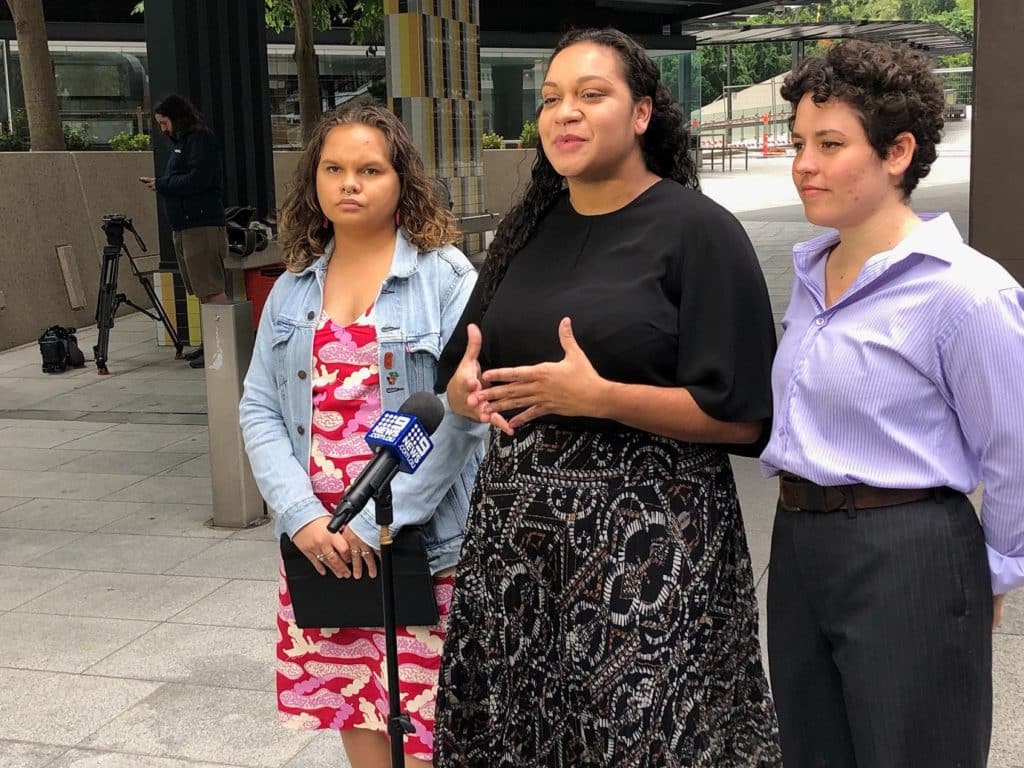A Queensland court has ruled Clive Palmer’s proposed Waratah Coal Project would unjustifiably infringe upon human rights in a landmark climate change case.
The case marked the first time an Australian court has heard evidence on-Country against a coal mine and according to First Nations protocols.
President of the Queensland Land Court Fleur Kingham recommended on Friday that the proposal for a mining lease and environmental approval to dig Queensland’s largest coal mine in the Galilee Basin should be rejected by the state government.
Kingham said the approval should be refused on environmental, climate and human rights grounds, telling the court the mine would unjustifiably limit the right to life, cultural rights of First Nations peoples, the rights of children, the rights to property, privacy and home and the right to enjoy human rights equally.
The historic case was brought by a group of young people, Youth Verdict, and was led by its First Nations members. They argued the coal mine would contribute to climate change and limit the cultural rights of First Nations people to maintain their relationships with the land.
Murrawah Johnson, Youth Verdict’s First Nations Lead and Co-Director, said the group was “overjoyed” by the result.
“The voices of First Nations Queenslanders have been heard,” she said.
“A court has recognised the human and cultural rights of First Nations peoples are impacted by climate change and has recommended that this mine not be approved.
“As a Wirdi woman, I am proud that this case was able to raise the bar for the respect given to First Nations knowledge and customs in the western courtroom. We are excited that we were able to use the Human Rights Act to advocate for changes to Land Court process based on cultural rights grounds.”
During the case, First Nations witnesses gave evidence from the frontlines, including at the Zenadth Kes (Torres Strait) islands of Erub and Poruma, as well as Gimuy or Cairns, and Hopevale.
Johnson said First Nations people would not stand by while “coal-fuelled climate change destroys our Countries” and threatens connections to culture.
“Billionaire Clive Palmer wants to line his pockets by building a new coal mine in a time when we must move away from extractive industries that destroy Country and fuel climate change,” Johnson said.
“First Nations peoples must have decision-making power over our Country, our lives and our futures. By continuing to fight for First Nations cultural rights, we’re fighting for a safe and healthy climate for us all.’
Johnson thanked the First Nations witnesses who welcomed the court onto their Country and told their stories.
“For some of them, this has been a chance to share with the world their deep knowledge and understanding of Country and its ecosystems and wildlife,” she said. “For others it was a moment to share the pain of the loss of place, of culture that they are already experiencing due to climate impacts like sea-level rise and heatwaves. We could not be more grateful and humbled by the heartfelt evidence they gave during the on-Country hearings.”
Kingham’s decision to reject the coal mine was a recommendation, and the final approval will be decided by the Queensland government’s resources minister.
EDO Managing lawyer Sean Ryan said it was a “hugely significant legal victory” for First Nations peoples.
“Fossil fuel companies and their financiers across Queensland should now look closely at today’s outcome and consider whether or not their proposals are compatible with human rights,” Ryan said.
“At over 2 billion tonnes of carbon emissions, this mine would have had a significant impact. It’s possible to have a safe climate without this coal mine – but we can’t have one with it.”
Ryan urged the government act in accordance with the court’s findings.
“I’d like to take this opportunity to thank all the First Nations witnesses who gave such compelling evidence about how climate change is already impacting them, their cultures and communities.”



